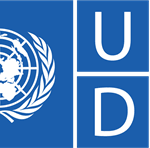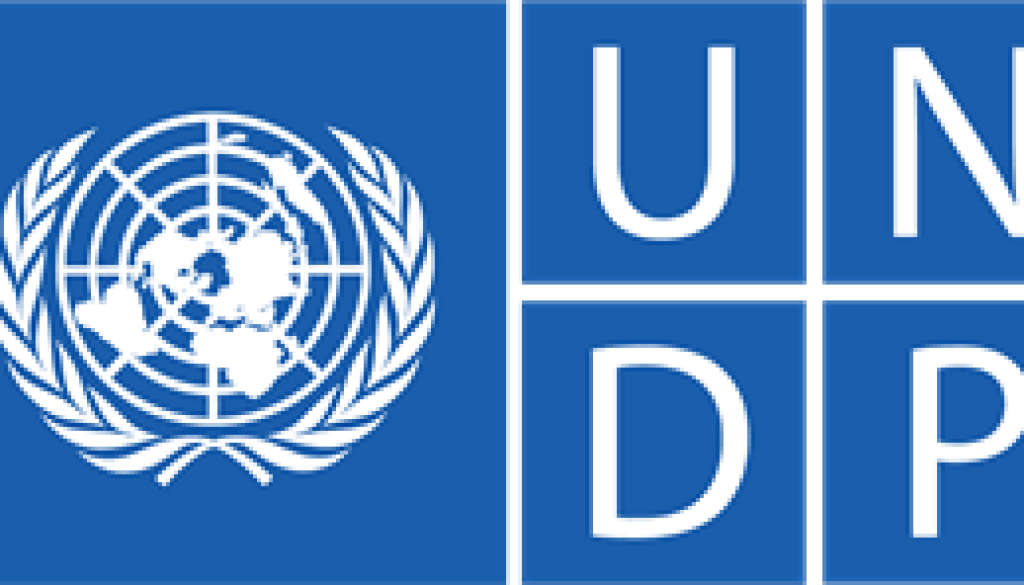Private Sector Development Analyst Economic and Social Inclusion Vacancy-Job Ref: WJMGUNDP/0407/2025821

UNDP
Private Sector Development Analyst Economic and Social Inclusion Vacancy-Job Ref: WJMGUNDP/0407/2025821
Antananarivo (Madagascar)
Job Description
In response to the various development challenges in Madagascar, UNDP has established its Country Program Document (CPD) for the period 2024-2028 to address 3 of the 4 strategic priorities defined in the United Nations Sustainable Development Cooperation Framework (UNSDCF), agreed between the Government of Madagascar and the United Nations System for the same period, and which, in turn, is aligned with the new General Policy of the Malagasy State which defines as strategic levers: (i) human capital; (ii) industrialization and economic transformation; and (iii) governance and the rule of law.
As part of the implementation of the CPD 2024-2028, the UNDP intends, through its contribution to Strategic Priority No. 3 (SP3) – “Boosting labor productivity and the creation of productive jobs for decent incomes and a competitive economy”, to support the Republic of Madagascar in implementing innovative solutions to reduce poverty and income inequality.
The PS3 aims to ensure that “populations, particularly the most vulnerable women and youth and people living with disabilities, enjoy more decent and productive jobs driven by businesses, including SMEs, in urban and rural areas, which are transitioning to a sustainable, modern, diversified and competitive economic model.” The PS3 will work in the areas of development policies and financing, strategic planning and implementation of international agendas, private sector development, regional integration and economic and social inclusion, but also in the areas of sustainable energy and digital development.
Project Initiation Plans (PIPs) are developed with the main objective of developing comprehensive projects, mobilizing resources and starting the implementation of certain priority activities. PS 3 has developed three (03) PIPs: (1) PIP on Private Sector Development, Socio-economic Inclusion and Regional Integration ; (2) PIP Strategic Planning, Financing Sustainable Development and International Agendas; (3) and PIP Angovo Maharitra.
The PIP on Private Sector Development, Socio-economic Inclusion and Regional Integration aims to support private sector development in Madagascar, improve the entrepreneurial ecosystem, and ensure economic integration at the local and regional levels with a view to increasing the creation of decent jobs, strengthening the capacities of development actors to access various economic opportunities to enable them to participate in the process of shock-resilient economic growth and earn decent incomes. It also aims to strengthen the social protection system in Madagascar by focusing on inclusive growth and social and economic integration through the promotion of productive activities.
The establishment and operationalization of political, strategic and regulatory frameworks in the field of the green economy and the blue economy in Madagascar, and capacity building actions will be a constant in the implementation of the project and will be part of an approach to empowering women and young people and their participation in economic development processes. It will consist of working alongside the Government and supporting it to drive resilient economic growth driven by diversified economic sectors, labor productivity and the creation of productive jobs, especially in the agricultural and gold sectors, in which the informal sector dominates, and thus improve the income and competitiveness of the economy.
In order to enable accelerated transformation and sustainable development, the project will make contributions to:
Create conditions that promote access to jobs and decent incomes for informal sector players, MSMEs/MPMIs, particularly those operating in the green and blue economy by focusing on promising sectors;
Reversing situations of non-competitiveness in the local economy and improving the environment favorable to businesses and industrialization, harmonizing regulations and supporting the development of the private sector at national and regional levels;
Consolidate the results and capitalize on the achievements of the intervention of the Malagasy Economic Diversification Project.
Strengthen the resilience of vulnerable communities by establishing sustainable social protection systems, thereby helping to stimulate economic activity and optimize the performance of public administration, particularly in terms of financing and coordination.
Duties and Responsibilities
Under the authority of the Team Leader of PS 3 and the direct supervision of the coordinator of the project “Private sector development, economic and social inclusion, and regional integration”, the regional analyst in private sector development, economic and social inclusion must have a sense of leadership and operational capacity to effectively lead and implement the lines of activity under his responsibility.
Overall:
Ensure the documentation and capitalization of experiences and lessons learned within the framework of the Program;
Develop concept notes and any other documentation necessary for guidance, decision-making, partnership building and resource mobilization related to its portfolio;
Participate in various meetings for reflection and discussion on his/her area of specialization and seek to harmonize interventions with partners and all other stakeholders in his/her area of specialization;
Contribute to the development of knowledge and know-how at the level of the different structures in its area of specialization;
Ensure the start-up and supervise the progress of planned activities in the area of community development and resilience in his/her assigned region;
Produce the necessary information on the region of assignment for the development of project planning documents: multi-year work plan, annual work plan, quarterly operational plans;
Supervise and monitor the work of consultants or consulting companies operating in their assigned region;
Maintain risk and issue logs;
Support the development and implementation of a sustainability plan for all activities and structures put in place;
Support the preparation and organization, jointly with other stakeholders, of supervision missions, field visits by UNDP and other partners;
Ensure the collection and compilation of data and information on the Program, and on this basis, prepare and submit periodic reports on activities carried out by UNDP in the region of assignment;
Support the establishment and management of community infrastructure, in support of local development and economic transformation;
Contribute to the documentation and capitalization of experiences and lessons learned within the framework of Strategic Projects/Priorities;
Develop a communication plan defining the main communication channels and products needed to ensure visibility of results
Support local private sector organizations in the development and processing of local resources and promote their access to the market; initiate the structuring of the private sector to revitalize the local economy
Contribute to the strengthening of coordination and monitoring structures and mechanisms at the regional and target municipality levels (SRISE, etc.);
Develop partnerships to strengthen program interventions in the region;
Develop and monitor cooperation frameworks with other partners.
Facilitate the multi-stakeholder process and communication;
Facilitate the development of partnerships and cooperation initiatives between communities
Value Chain:
Identify opportunities for local stakeholders to increase their benefits, job creation and livelihood opportunities;
Collect basic data on production, statistics on the number of chain actors for each region/district, chain constraints, current export/import volumes, job creation by the chains, market trends, trade barriers (tariff and non-tariff) and other aspects affecting trade flows.
Undertake a value chain analysis based on the existing interrelationships between the main actors in the value chains ranging from the supplier of inputs to the distributors of finished products
Identify the main bottlenecks and levers for the development of value chains;
Map all activities as well as product flows and added value elements at the different links in the chain;
Identify priority actions and investment programs on supply and demand, on infrastructure and on institutional support;
Develop action plans detailing the activities to be carried out at each stage of the value chain in order to promote its performance and improve the volume and value of trade in the selected products.
Promotion of foreign trade:
Supply and demand studies to gather market information and identify opportunities and potential customers through field research by product and country;
Promote buyer/seller meetings which provide companies with an opportunity to conclude commercial transactions and take advantage of identified opportunities;
The incumbent performs other tasks deemed necessary for the efficient functioning of the Office and the Organization
4. Institutional Arrangement
The Analyst will work under the authority of the Team Leader of PS 3 and the direct supervision of the coordinator of the project “Private sector development, economic and social inclusion, and regional integration”, and will work in close collaboration with the National Project Director (DNP) designated by the national party.
Skills
Core
Getting results:
LEVEL 1: Plan and monitor own work, pay attention to detail, deliver quality work within given deadlines
Think innovatively:
LEVEL 1: Open to creative ideas/known risks, pragmatic in problem solving, makes improvements
Learn continuously:
LEVEL 1: Open-minded and curious, shares knowledge, learns from mistakes, asks for feedback
Adapt with agility:
LEVEL 1: Adapts to change, constructively manages ambiguity and uncertainty, demonstrates flexibility
Act with determination:
LEVEL 1: Demonstrates drive and motivation, able to deliver calmly in the face of adversity, confident
Commitment and partnership:
LEVEL 1: Shows compassion/understanding towards others, forms positive relationships
Promoting diversity and inclusion:
LEVEL 1: Appreciate/respect differences, be aware of unconscious bias, deal with discrimination
Cross-functional and technical skills
Thematic area
Name
Definition
Company management and strategy
Business acumen
Ability to understand and manage a business situation in a way that is likely to result in a successful outcome.
Knowledge and understanding of the organization’s operational frameworks and the ability to make good judgments and rapid decisions within these frameworks.
Agenda 2030: Peace
Conflict prevention, peacebuilding and responsive institutions
Youth, Peace and Security
Business management
Results-based management
Ability to manage programs and projects with a focus on performance improvement and demonstrable results.
Business management
Project management
Ability to plan, organize, prioritize and control resources, procedures and protocols to achieve specific objectives.
Business management
Partnership Management
Ability to establish and maintain partnerships with broad networks of stakeholders, governments, civil society and private sector partners, experts and others, in line with UNDP strategy and policies
Business management
Risk management
Ability to identify and organize actions to proactively mitigate and manage risks.
Agenda 2030: Peace
Governance
Governance and territorial development (2243 RSC 2015)
Required Skills and Experience
Education: A higher university degree (Master’s degree or equivalent) in Business Management, International Trade, Economics and Social Sciences or equivalent
Gold
A first level university degree (Bachelor’s degree) in the above-mentioned fields with 2 additional years of experience will be duly considered in lieu of the advanced university degree.
Experience:
Candidates with a Master’s degree (or equivalent) in a relevant field of study are not required to have professional experience. Candidates with a Bachelor’s degree (or equivalent) must have at least two (2) years of experience in economic, social, and project/program management.
Proficiency in Microsoft Office (Word, Powerpoint, Excel, Outlook, internet, MS Project, etc.).
Experience in trade or private sector development
Knowledge of development issues in Madagascar
Experience with the United Nations or an international NGO
proven communication and organizational skills
Proven ability to travel frequently and work in rural areas;
Fluency in French is required
A good knowledge of English is an asset.
Please click on the button below to Apply.

